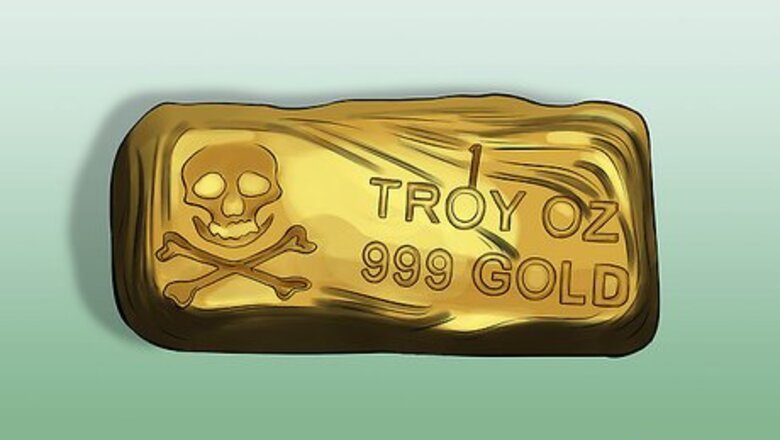
views
X
Research source
Researching Gold Coins
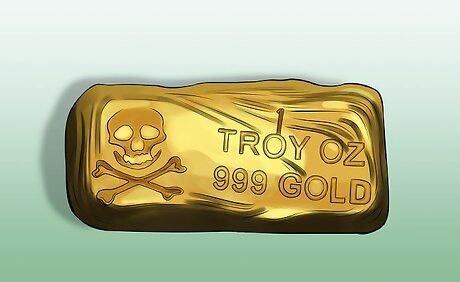
Learn about coin weight. It is good to have at least some knowledge about gold coins when buying and selling. The standard weight for a gold coin is one Troy ounce (31.1 grams, a little heavier than the standard ounce). There are coins that weigh less than one Troy ounce (1ozt), but they trade less frequently, and you will pay a bigger percentage premium to buy them from dealers. That will cut into your potential profits.
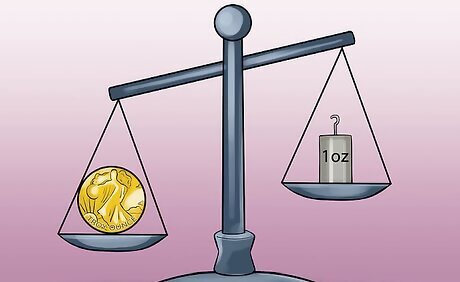
Pay attention to the difference between ounce and Troy ounce. The Troy ounce is used because a standard measurement system is needed since gold is an important, universal material. The difference between the two measurements matters more as you buy more gold. For example, a 100 Troy ounce bar of gold is not the same as 100 ounces of sugar. You would be losing 8.85 Troy ounces of gold. Calculate carefully.
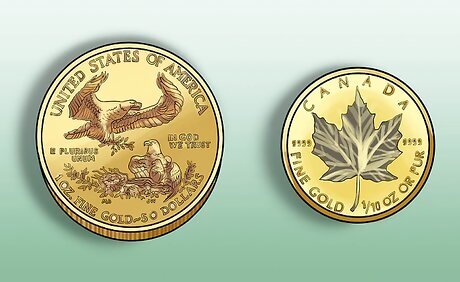
Look into bullion coins. Gold coins can be segregated into various types. The two main types are bullion and numismatic. Bullion coins are more commonly acquired by gold investors because the prices are transparent. The price of gold depends on the market price of physical investment grade gold. The most common bullion coins are American Gold Eagles and Canadian Maple Leafs. Bullion gold coins of today usually have 90% or higher level of gold content and are 22k to 24k.
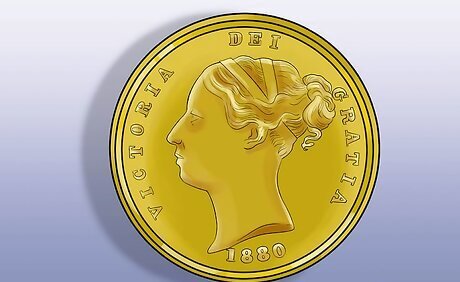
Learn about numismatic coins. Numismatic coins are most often purchased by gold collectors. The price of this gold coin is more dependent on outside factors, like rarity of coin, than market price. Rare collectible numismatic coins can sell at a very high premium--more than the gold value alone. Most of the buyers and sellers of numismatic gold coins have decades of experience. It is not recommended for beginners. A few examples of numismatic coins are British Sovereigns, 20 Swiss Francs, and $10 Eagle coins. Bullion coins are made year-to-year. Numismatic coins are not produced in modern times.
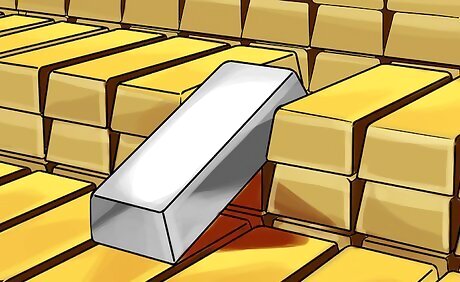
Do not rely on gold as insurance during a crisis. Gold is sometimes traded in hard times for things like cigarettes and shoes, but it won’t get you by in a time of crisis. This is because gold loses its value in times of crisis. Gold is not stable, and it is actually a commodity because it is a metal. Gold is, however, a good investment if you follow the market, carefully choose the type of coins you buy, and don’t solely rely on it for financial insurance. As the value of money falls, the value of nominal gold rises and vice-versa. You should also consider investing in silver if you are looking for something to fall back on during hard times.
Buying Gold Coins
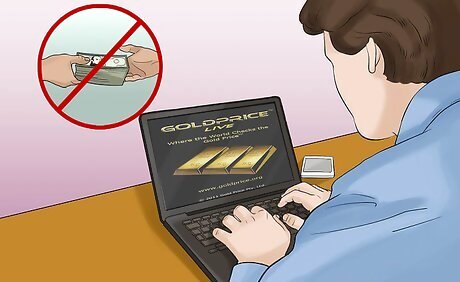
Avoid overpaying. You should check the price of gold the day you plan to buy. Don’t pay more than a 5% to 8% markup on the price, based on what the price is that day. A small markup is normal because the extra cost typically covers the price of minting and shipping, the dealer, and the authorized purchaser. You can check the current price of gold on websites like www.goldprice.org
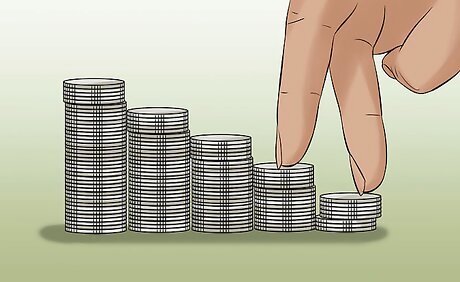
Notice the fees. Look into extraneous fees and the validity of the company you are buying from before making a purchase. You should look into fees like shipping costs, hidden commission, insurance fees, or extra charges due to payment type. Use your judgment and compare with other vendors to make sure you’re not being overcharged.
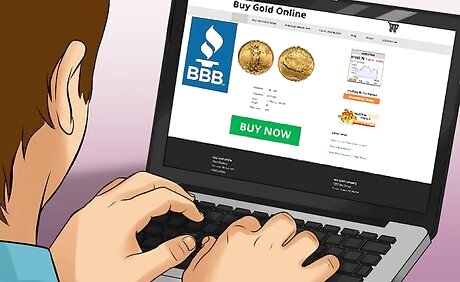
Look up the business. It is important to buy from a legitimate vendor when purchasing gold. Research the business you plan to buy from on websites like Better Business Bureau and RipOffReport.com The vendor should have many positive peer reviews, and a generally good rating. Before buying, you should also check to see if the vendor will buy back the gold coins, and if they will give you a fair price in years to come.
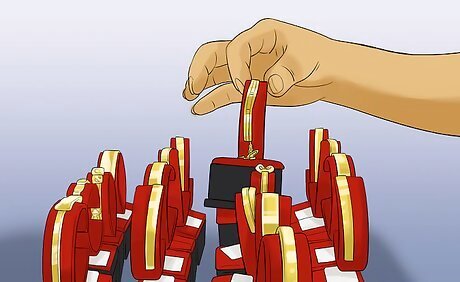
Shop around. There are many ways you can buy gold coins. You can buy from the government, online, or from a local retailer. Your best bet is to compare prices on whichever coin you're thinking of buying.
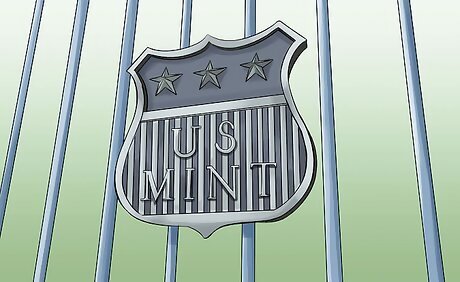
Buy from the government. Their coins usually come with a reliable guarantee of gold content, weight, and purity. The variety of coins may be limited, but you can feel safe buying from the government. Buying from the government, however, may not be the best option if you are looking for old and/or rare coins. The US government sells gold coins online at usmint.gov
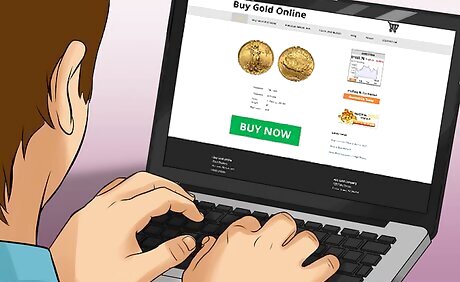
Buy from an online site. There are numerous websites to buy coins from online, like ebay.com and goldsilver.com. Because there are so many sites out there, be sure to check every website out before considering a purchase. Most retail sites offer multiple methods of purchase, like PayPal, credit card, money orders, and checks. Don’t jump on the lowest price. The vendor with the lowest price may not be the one that provides the best quality of purchase.
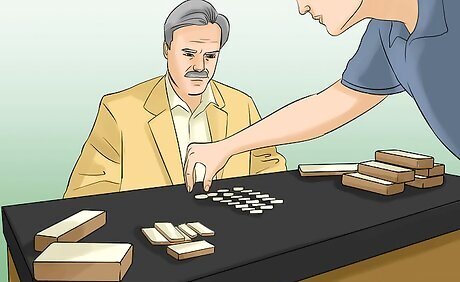
Buy from an individual dealer. You can buy locally from a jewelry shop or pawn shop. This is the riskiest route, however. Some dealers make shady guarantees in order to trick buyers into purchasing their coins. Try to obtain a price guarantee (a specific value guarantee that the dealer places on your coin). If buying within your state, check the United States Mint website for a list of reputable dealers by state. Go to www.usmint.gov to check by state. The US Mint checks the dealers, but does not vouch for them.
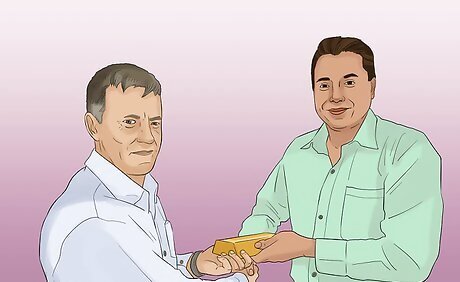
Buy coins from people. If you want to buy coins below market value, like the dealers do, learn how to buy coins from the public. You can do this by looking through yard sales and buying online from websites like eBay. Make sure you do so legally though. Avoid soliciting others for their gold.
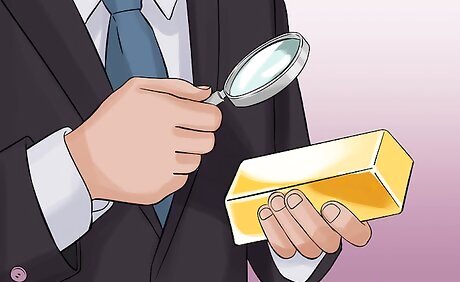
Inspect the coins. Make sure the coins are real soon after you make your purchase. One of the most important things you can do to minimize your losses is make sure the coins are made from real gold without damaging them. You can do this by testing things like the weight, sound, and acidity. Gold is a dense metal. Even if the coin weighs what it should, check the diameter and thickness. Sometimes fake coins will make up for weight by a thicker diameter and thickness. Or, they will be underweight to make up for the size. Check the weight and thickness by using a jeweler’s scale and calipers. Strike the gold coin with another coin. It should chime. Base metals will sound duller, and the sound will not last as long. Buy an acid test to see if the gold coin is genuine. Do not overdo this because the test can cause permanent damage to the coin. You check the quality by rubbing the gold on a black stone, which will leave a mark. You then apply nitric acid to the coin. Any mark that is not gold should dissolve. Have a third party certified coin dealer verify they are real.
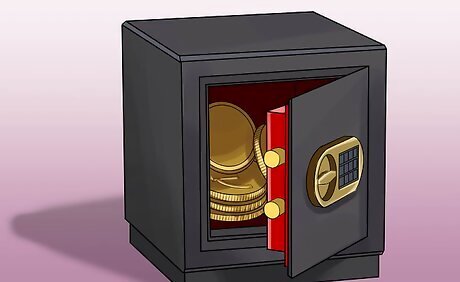
Plan where you will store the coins. Any secure method of storage is going to cost you money. Consider a bank safe deposit box, a home safe, or a safekeeping program offered by some gold dealers. This mainly concerns investors, though. You will keep the coins on hand, in a lock box, or safe temporarily if you plan to resell them for a quick profit.
Selling Gold Coins
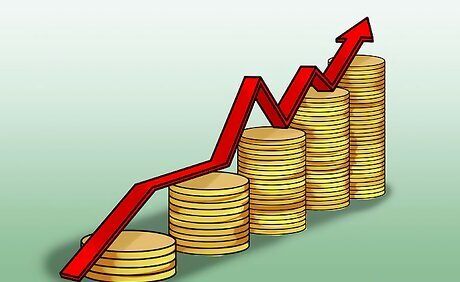
Keep track of gold value. It is just as important to know the price of gold when you’re selling as it is when you’re buying. Most newspapers report the price of gold daily, and you can get almost instantaneous updates online at several sites. Don’t sell the gold immediately unless the type of coin you have is doing very well. Check the site often and sell when the coin is doing well, or when you really need it. Keep track of the price www.goldprice.org Even if the coin is doing particularly well, it is wise to wait years before selling certain coins.
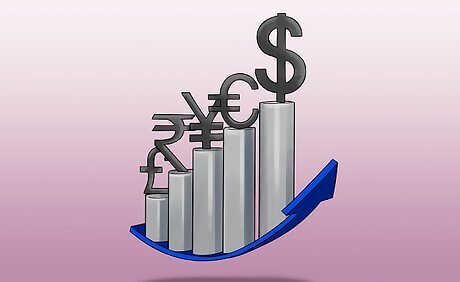
Keep track of the value of your country's currency. This is also widely reported. As mentioned, there tends to be an inverse relationship between that and the value of gold. It is best not to sell when the currency for your country is doing very well. Instead, wait for the currency to decline in value.
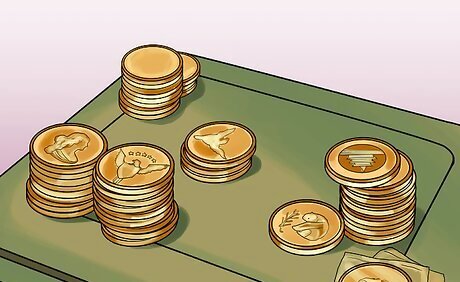
Aim to sell your coins at the peak of demand. This is where both research and intuition steps in. You want to sell your coins right before the value of gold starts going down, so that you walk away from the transaction with more money than you spent on the coins. Since timing the market does not always work, you should consider selling when the price of gold is at all time high, the demand is very high, the sentiment is generally bullish, and you are sitting at a sizeable profit. No matter what the reports say and how the market is doing, the choice to sell is ultimately up to you.

Take your gold coin to a jeweler or pawn shop. It is an option to sell directly to a jeweler or pawn shop, but you should make a trip to either or both places no matter where you sell. Look for a reputable jeweler or pawn shop, take your gold coins to them, and ask to have an estimate to assess their value. Use that value as the base of what you charge, whether it is online, like on eBay, to an individual, or to a retailer. Go to three or four shops for estimations.
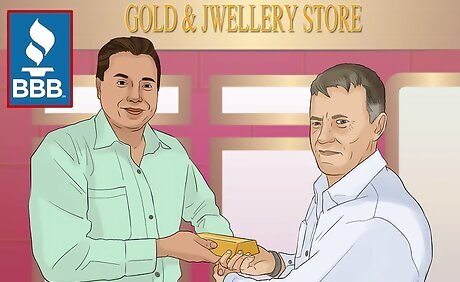
Do not sell to “rogue” buyers. Rogue buyers are those who come to town, set up in places like a hotel ballroom, and disappear without paying. These buyers will make false promises to buy for high prices, but will actually pay for less than what the gold is worth. For example, a piece of gold appraised for $250 may only get an offer of $130 from a rogue buyer. Stick to selling to retailers approved by the Better Business Bureau to assure that you are not being cheated.
















Comments
0 comment